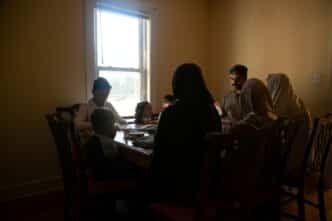On Sept. 17, the deaths of 12 Hezbollah militants in coordinated explosions across Lebanon, and the wounding of over 2,700 people nearby, stunned the world, in part because it was soon revealed that the miniature bombs that had caused such damage were planted in pagers used by Hezbollah to communicate. The following day, 20 more members of Hezbollah were killed, and hundreds more people were injured — this time, by exploding walkie-talkies.
The state of Israel has not officially acknowledged responsibility (and likely never will) for planting the explosives in pagers and walkie-talkies or for sending the signals that caused them to detonate, but sources who have remained anonymous have confirmed what everyone suspected. And so, in the space of 24 hours, the war between Israel and the Islamic militants of Hamas and Hezbollah has entered a new, and historically unprecedented, phase.
The year-long conflict is just the latest evolution of a decades-long struggle in the Middle East in which there have been many losers but never, truly, any winners. While the United States remains, officially, an ally of Israel, and the U.S. State Department continues to classify Hezbollah as a terrorist organization, the actions of all involved in this struggle have all too often violated both international law and the principles of just war.
Injuring noncombatants
As the Second Vatican Council’s pastoral constitution on the Church in the modern world, Gaudium et Spes, teaches, “The mere fact that war has regrettably broken out does not mean that everything becomes licit between the warring parties.” A country may enter into a war justly — for instance, when it defends itself against an unprovoked attack — and still act unjustly during that war.
The most obvious — and, alas, most common — way in which warring parties act unjustly is through the indiscriminate killing of noncombatants. The carpet-bombing of entire cities in Europe during World War II and, at the end of the war, the dropping of the atomic bomb on the Japanese cities of Hiroshima and Nagasaki are classic examples. The first principle of morality, the Catechism of the Catholic Church reminds us, is that we cannot do evil that good may come of it. For a war to be conducted justly, actions that are likely to result in the deaths of civilians must be avoided, even if doing so makes it harder to achieve victory.
While, in theory, Israel’s use of pager and walkie-talkie bombs was specifically targeted at the Hezbollah militants who would be carrying those pagers and using those walkie-talkies, in practice the effect was much closer to carpet-bombing. That thousands would be injured was entirely foreseeable. That reality — and not whether the injuring of noncombatants may have been part of the effect desired — is enough to make it clear that these bombings were unjust.
A universal law
While the principles of just war have long been associated with Christianity, the Catholic Church has always taught that they can be derived from natural law and are, therefore, available for anyone, Christian or non-Christian, to discover through the use of reason. That the struggle in the Holy Land is taking place between rival groups of non-Christians does not in any way relieve those on either side from their obligation to fight within the bounds of justice.
When we, whether Christian or non-Christian, conform our actions to the natural law, the effect is greater peace and harmony. Down through the centuries, the Church has called warring nations to conduct themselves justly in their battles, knowing that this is the only way to arrive at a just peace. Indiscriminate bombings, like Israel’s pager and walkie-talkie attacks, amounts to terrorism: As David Sanger wrote in the New York Times on Sept. 19, it “makes everyone fearful that ordinary devices can become an instant source of injury or death.” When war is conducted unjustly, peace will never prevail, and in its place we can only expect to see new generations engaging in unending cycles of retribution over the sins and injustices wrought by their fathers.







